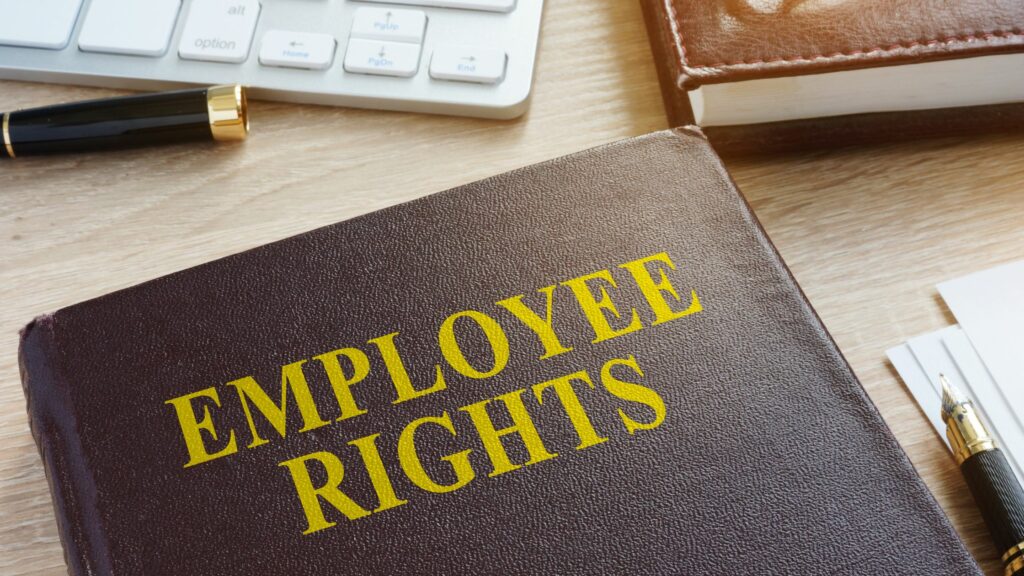Employee Rights: Navigating Unfair Dismissals

Are You The Victim Of An Unfair Dismissal?
In the ever-evolving landscape of the UK job market, understanding one’s rights as an employee is vital. Central to these rights is the concept of unfair dismissal – a situation many find themselves in, often without a clear roadmap for recourse. This blog aims to demystify the concept of unfair dismissal, exploring what it constitutes, its impact on individuals, and the pathways available for challenging such dismissals in the UK workplace.
What is Unfair Dismissal?
Unfair dismissal is a term used in UK employment law to describe an employer’s action of terminating an employee’s contract without a fair reason or without following the company’s proper disciplinary or dismissal process. This can include scenarios where the dismissal is unrelated to an employee’s conduct or capability or where the employer has failed to provide a legitimate and sufficient reason for the dismissal.
Critical Grounds for Unfair Dismissal
Critical grounds for unfair dismissal encompasses several key aspects that can render a dismissal illegitimate and unjust in the eyes of the law. These include:
- Lack of a Valid Reason for Dismissal: This is a fundamental aspect. Every employee has the right to be dismissed only for a legitimate and justifiable reason. If an employer terminates an employee without a sound, clear, and reasonable cause, it is considered unfair. This might include situations where the dismissal is arbitrary, based on personal dislike, or lacking substantive evidence of the employee’s inadequacy or misconduct.
- Failure to Follow the Company’s Disciplinary or Dismissal Procedures: Most companies have established procedures for disciplining and dismissing employees. These procedures are designed to ensure fairness and consistency in handling employment matters. If an employer disregards these protocols, the dismissal may be deemed unfair. This includes skipping necessary steps, not giving the employee a chance to respond or improve, or not providing appropriate warnings when they are part of the procedure.
- Dismissal on Discriminatory Grounds: This refers to terminations based on personal characteristics of the employee rather than their job performance or behavior. It includes discrimination based on age, gender, race, religion, national origin, disability, and other protected characteristics. Such dismissals not only constitute unfair dismissal but also violate anti-discrimination laws, potentially leading to legal consequences for the employer.
- Dismissal for Reasons Related to Maternity, Paternity, Adoption Leave, or Pay: Employees are often legally protected from dismissal due to reasons related to maternity, paternity, or adoption. This includes taking maternity or paternity leave, time off for adoption processes, or any pay associated with these leaves. Dismissing an employee because they are pregnant, have recently given birth, or are taking lawful leave for adoption or paternity purposes is considered unfair and is protected under employment law.
Each of these grounds for unfair dismissal highlights the need for employers to adhere strictly to legal and ethical standards in their employment practices. Failure to do so not only undermines employee trust and morale but can also lead to significant legal and financial repercussions for the company.
The Impact of Unfair Dismissal
The effects of unfair dismissal extend beyond just the loss of a job. It can lead to significant financial strain and emotional stress and affect future employment prospects. The feeling of injustice can also profoundly impact an individual’s self-esteem and mental health.
Challenging Unfair Dismissal
If you believe you have been unfairly dismissed, there are several steps you can take:
Step 1: Internal Procedures
Initially, it would be best if you attempted to resolve the issue internally. This may involve speaking with your HR department or using your company’s grievance procedure.
Step 2: Seek Legal Advice
If internal procedures do not resolve the issue, it is advisable to seek legal advice. Solicitors specialising in employment law can guide you on the merits of your case and the best course of action.
Step 3: Employment Tribunal
Should legal advice suggest it, you can take your case to an Employment Tribunal. It’s important to note that claims for unfair dismissal must be made within three months, less than one day after your dismissal.
Step 4: Mediation
In some cases, mediation might be an option. This involves an independent third party assisting the employer and employee to reach a mutually acceptable resolution.
Your Rights During the Process
Throughout the process of challenging an unfair dismissal, it’s crucial to be aware of your rights:
- The right to a fair hearing.
- The right to be accompanied by a trade union representative or colleague in any meetings.
- The right to access all relevant information your employer used in their decision to dismiss.
Catherine Herries-Smith Solicitors: Championing Fairness in the Workplace
Catherine Herries-Smith Solicitors stands as a beacon of support for those navigating the complexities of employment law. With a deep understanding of employer and employee perspectives, this firm offers balanced, pragmatic advice tailored to each unique situation.
Catherine Herries-Smith Solicitors specialises in all aspects of employment law, including unfair dismissal. Our approach combines legal expertise with a keen awareness of employment disputes’ practical and emotional aspects.
These Articles May Also Interest You:
A Simple Guide to Auto-Enrolment for Your Workplace
5 Ways to Protect Your Business from Employment Lawsuits
10 Key Employment Rights Every Employee Should Know About
Supporting Employers and Employees
Our commitment to supporting employers and employees sets Catherine Herries-Smith Solicitors apart. For employers, we offer guidance on how to implement fair and legal dismissal procedures, thus avoiding potential legal challenges. For employees, we provide robust representation and advice, ensuring their rights are protected and their voices heard.
Navigating unfair dismissals can be a daunting challenge. However, employees can confidently assert their rights and seek justice with the correct information and support, such as that offered by Catherine Herries-Smith Solicitors. Remember, understanding your rights is the first step towards safeguarding your career and well-being in the workplace.
